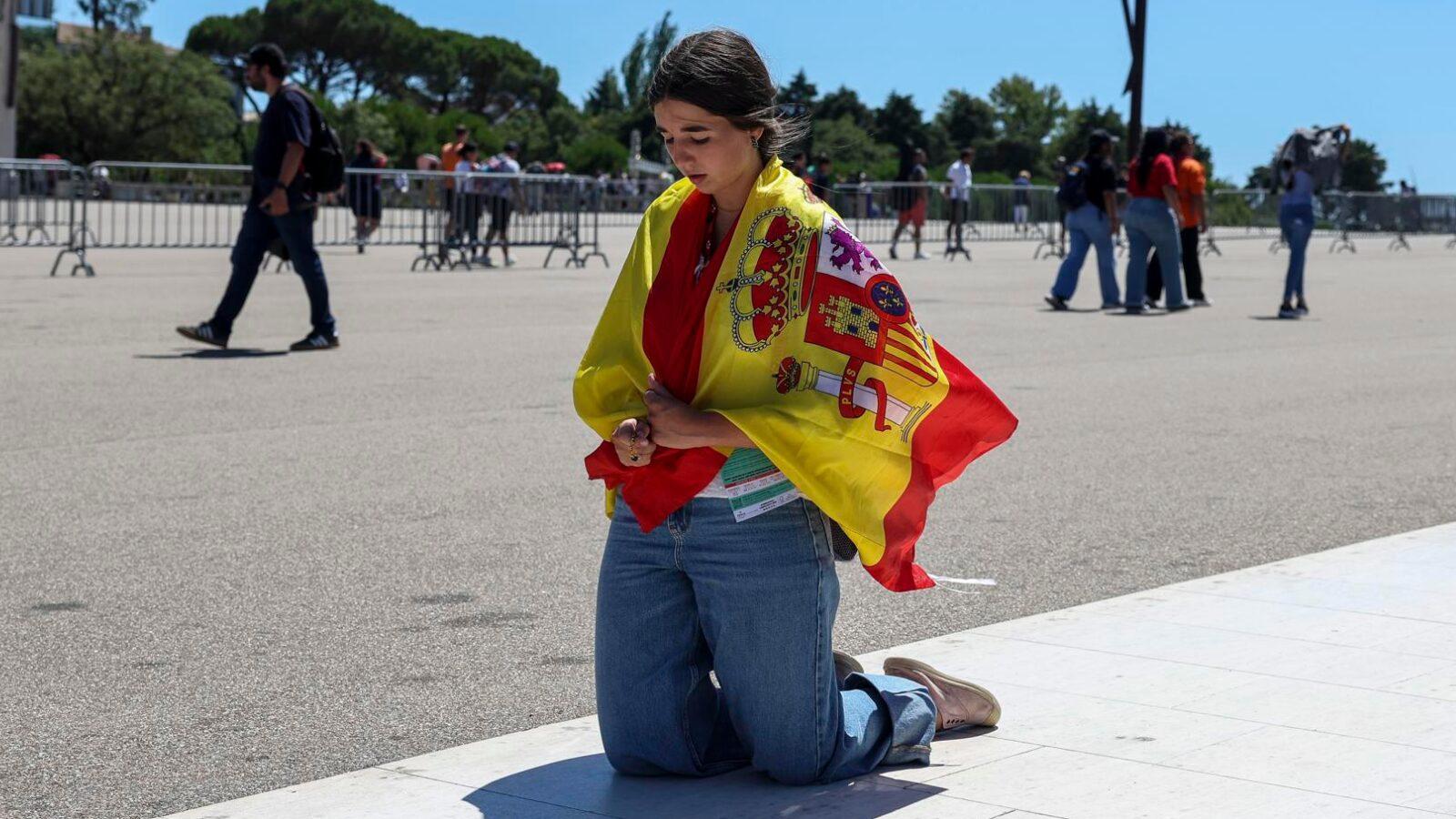In countries like France and the United States, young people seem to be bucking a trend that seems irreversible.
Listen to this content
For decades, research institutions have observed a consistent trend: Christianity, especially in the United States and Europe, is losing followers slowly and steadily.Among sociologists, the prevailing assumption was that secularism would advance unopposed, with generations increasingly removed from religious experience.But this narrative is starting to show signs of wear and tear.
In the United States, information about the number of Christians showing monotheism.This is the first time that the bottom line has been stopped in the chart.And in many parts of the world, especially the youth, especially the youth of the aforementioned youth (the youth between the 90s and 2012).
The Pew Research Center - one of the most innovative research centers in the world, politics and social behavior - released the latest version of the religious survey this year.According to the data collected, 63% of Americans identify as Christians (Catholics, Protestants and other denominations) registered after the age of 60 compared to 20%.Furthermore, the number of 60% and 60% and 64%).
The study looked at religiosity by decade and found that over the past 100 years, Americans have converged from generation to generation, and for some time from generation to generation.For example: 80% of people born in the 1940s say they are Christians.Among those born in the 1990s, only 46% retain this personality.However, the study shows an intergenerational trend, with identification becoming more stable among those born in the 2000s.The decline in the number of Christians in America has stopped.
Baptism in France
However, this trend is not limited to the United States. In France and Japan, almost 18 million people were baptized in 2000, and 20-25 people were baptized in the age range of 30 and over.Catherine Lemoine, National Representative of the Ministry of Europe in France at the Ministry of Youth For young people, the enthusiasm of young people is contagious.They are not afraid to invite friends."He wrote in an article on the La Croix website.
The drive for baptism, catechesis and community involvement is growing in countries with a Christian tradition, especially among Generation Z. For example, Catholic baptisms will increase significantly in Belgium and Ireland by 2025. In the UK, research calls the increase in church attendance caused by Generation Z a "quiet revival".mental problems, loneliness and loss of meaning in life, especially among young people.
For David Kinnaman, CEO of the Barna Group - one of the main research centers on religious movements, focusing on Christianity in the United States - the increase in religious interest is a very relevant date."Many predicted that Christianity will become irrelevant; however, this data shows that spiritual movements have momentum and can, effectively, change," he said in the publication of the research "The State of the Church" 2025 ", made by the group. According to Kinnaman, this is the "clearest sign of spiritual renewal in more than ten years" - and, for the first time, led by the young generations.
The changing relationship between youth and Youliodt has attracted the attention of experts who are trying to understand the causes and effects of this social phenomenon.
In the Science of Religion at the University of Ceylon and in Religion by Professor Mr. Vero and Professor Mr. Verlio, there are three factors which help to understand the concessions of faith among the youth in recent years.2:19 confirmed earlier in the health crisis.
Another factor is seeking respect for some of the values of the previous generation - something that usually characterizes international relations.Each generation, more or less, proclaims itself against the previous generation, either by adopting the opposite behavior, rejecting or rejecting what its parents valued.It is related to the construction of the social and cultural identity of the age group."Therefore, children's growing interest in religion is a form of inversion and rebellion," explains Novas.Unlike in the 1990s and 2000s, when "leaving religion" marked the search for personal freedom, now there are young people for whom "returning to religion" is an expression of identity and difference.
The third factor does not mean the growth of the global political situation of the development of the religion of Generation Z. Events such as political events and the continuous growth, "Christianity has become a symbol of conservative politics.
For example, this research shows that the identity of a Christian falls more among those who emphasize than among those who are responsible for thinking.Although in 2007 the proportion of those who continue to declare themselves Christians fell by 25 percentage points, it is not good among the indicators, only seven points.As a result, young people are 45 percent more likely to identify as Christians than their progressive peers.
The form of religiosity of Generation Z should not be the same as the expressions of faith of previous generations.Much of the experience of today's teenagers and young adults is occupied by screens and online environments.
According to Novaes, "Churches in this sense need to study the digital world and dialogue with the digital world. This changes the ecosystem and the religious authority compared to the digital religious authority," he says.
For many, religious experiences arise in the digital environment itself.It's not just about intimate conversations or spiritual conversions.Religion has become a digital product: Some very interesting clothes, priests, priests, which includes for the first time the meeting of "Missionaries and those who do well."
This hybrid environment—spiritual, communal, and aesthetic—makes religion a place where collective experience exists.And, for many, where there is a kind of emotional stability.According to Nawaz, "More than anything else, young people are looking for welcome and tangible connections in society. With social life and emotional connections oriented towards digital culture, religious institutions have the opportunity to offer a space for socialization and connection."








